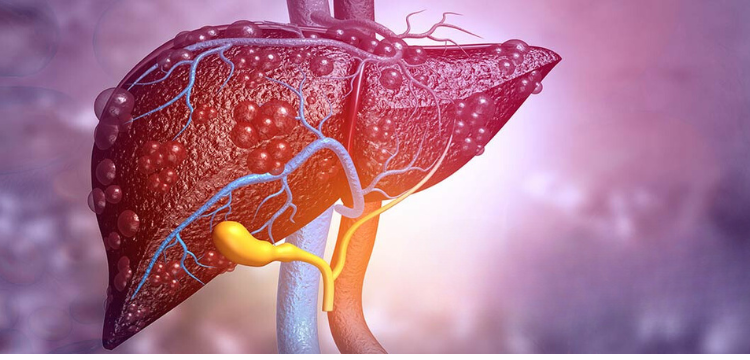Liver Cancer Surgery cost in Delhi

Liver cancer, a malignancy that originates within the liver, has been a global health concern for many years. It is a formidable adversary, often detected at advanced stages, making treatment challenging. According to global statistics, liver cancer ranks as the sixth most commonly diagnosed cancer, with a staggering 905,677 new cases reported worldwide in 2020 alone. Unfortunately, the prognosis for liver cancer remains grim, with it being the third leading cause of cancer-related deaths, responsible for nearly 830,180 lives lost in the same year.
These alarming statistics underscore the pressing need for practical treatment approaches. Liver cancer surgery emerges as a critical component of this battle. It offers hope to individuals grappling with this devastating disease by removing malignant tumors and potentially curing the cancer.
This comprehensive blog on liver cancer surgery delves into the intricacies of this vital procedure, exploring various surgical techniques, postoperative care, and expected outcomes.
When Might Surgery be Used for Liver Cancer?
Surgery is often the treatment of choice if it can be done. However, surgery may not be a choice if you have cirrhosis or other liver damage. It may also not be a choice if the tumor takes up too much of your liver, you don’t have enough healthy liver or both. Surgery isn’t used if the cancer has spread outside your liver to other parts of your body. As a result, a patient might be eligible for liver surgery if:
- The cancer is confined to one part of the liver and hasn’t invaded significant blood vessels.
- The remaining portion of your liver is relatively healthy.
- The patient is in good overall health and can tolerate substantial surgery.
Alternatively, if the cancer is solely within the liver but is extensive or located in multiple areas, a patient may consider:
- Complete liver resection, followed by a liver transplant as a treatment option.
What are the Types of Surgery for Liver Cancer?
Below are two choices for liver cancer surgery.
a) Partial hepatectomy (tumor resection)
The surgeon removes the part of the liver that contains the tumor. This is the preferred surgery if it can be done. However, not many people with liver cancer can have this surgery. This is usually because the cancer is too big, it’s in many parts of the liver, the tumor has spread into a major blood vessel, the cancer has spread to other parts of the body, or because the rest of the liver isn’t working well enough.
The surgeon usually will use an extended cut (incision) in the belly (abdomen). But sometimes, it can be done laparoscopically. This is when the surgeon makes several small incisions in the stomach. Long, thin surgical tools are put into the incisions to remove part of the liver. One of these tools (called a laparoscope) has a tiny video camera on the end to let the surgeon see inside your body and do the surgery.
b) Liver transplant
This is when the surgeon removes the entire liver and replaces it with part or all of a liver from a donor. More people might be able to have this type of surgery, but its use is limited because it’s hard to find a donor liver for transplant.
Dr. Deep Goel states, “Although partial hepatectomy is a common choice, its suitability varies based on individual factors. Factors such as the tumor size, extent, and overall liver function are crucial in determining the most appropriate surgical intervention, ensuring optimal outcomes for each patient.”
How much does Liver Cancer Treatment Surgery in Delhi cost?
The cost of liver cancer treatment in Delhi starts at ₹200000. It varies between hospitals and institutions and is determined by various factors. However, the average cost of the treatment in Delhi is ₹275000, with prices ranging from ₹275000 to ₹350000.
What are the Possible Risks, Complications, and Side Effects of the Surgery?
Surgery for liver cancer is a significant operation. You must be healthy enough for it; the healthcare provider thinks the benefits outweigh the risks. All surgery has risks. Some of the dangers of any major surgery include:
- Reactions to anesthesia
- Blood clots in the legs or lungs
- Damage to nearby organs
- Pneumonia
- Infection
- Bleeding
- Pain, which gets better as your body heals
Along with the general risks above, liver surgery can sometimes cause these problems:
- Extra bleeding: Bleeding is a risk with any type of surgery, but it’s even higher with liver surgery. This is because a lot of blood passes through the liver. The liver also makes clotting factors that generally help stop bleeding; surgery can affect this clotting process.
- Infection: This is primarily a concern in people who get a liver transplant. This is because they need to take medicines to suppress their immune system to keep it from rejecting the donor’s liver. Infections in people taking these medicines can be severe. The medications themselves can also have side effects.
- Rejection of the donor’s liver: Even though people who have had a liver transplant take medicines to suppress their immune system, the body might reject the new liver.
- Return of the cancer: This is possible with partial hepatectomy. If even a tiny number of cancer cells are in the remaining part of the liver, with time, they can grow into a new tumor.
“While surgery can offer life-saving benefits, it also carries inherent risks, such as bleeding and infection,” says Dr. Deep Goel. He further adds, “For patients undergoing liver transplantation, the need for immunosuppressive medications to prevent rejection introduces additional complexities. Healthcare providers and patients must work together, weighing the potential risks against the expected benefits and closely monitoring recovery to address any challenges promptly.”
What to Expect During Surgery?
- Pre-Surgery Preparation: Taken to the operating room
- IV Placement: Intravenous line in hand or arm
- Vital Sign Monitoring: Continuous heart rate, blood pressure, and breathing monitoring
- General Anesthesia: Administered to induce painless sleep
- Procedure Specifics: The surgeon determines removal and incision locations
- Post-Surgery: Transferred to the recovery room
- Ongoing Monitoring: Observed for 1-2 hours
What to Expect After Surgery?
When you first wake up, you might have some pain. You’ll be given pain medicine for a few days to help you feel more comfortable. It’s important to control pain so you can take deep breaths, cough, and get up and walk soon after surgery. Walking and moving is essential for your recovery.
It will take time to get back to eating normally and having regular bowel movements. You may have to stay in the hospital for a few days, but how long you stay will depend on the type of surgery you have. People who have a laparoscopic hepatectomy can often go home sooner than those who have an open hepatectomy. This is because they have smaller incisions that tend to heal faster.
Once you go home, you can slowly return to most normal activities. However, wait to lift heavy things for several weeks. Always follow the instructions from your healthcare provider or nurse.
After surgery, you may feel weak or tired for a while. This is normal. While the amount of time it takes to recover varies from person to person, you’ll probably feel like you only for a few months. You likely won’t be able to drive for a while, but your healthcare providers will surely tell you what you can and can’t do.
A happy patient of Dr. Goel’s expressed his gratitude by saying, “I underwent a partial hepatectomy performed by Dr. Deep Goel, and I can’t express how grateful I am for his expertise. Despite the complexity of the surgery, Dr. Goel’s laparoscopic approach made my recovery smoother and quicker. His skill and compassionate care transformed a daunting experience into a hopeful journey toward better health. Thank you, Dr. Goel, for giving me a second chance at life.”
Conclusion
Thus, Liver cancer is a serious global concern, affecting many lives. Surgery is a crucial tool in the fight against it. Dr. Deep Goel emphasizes that surgery’s suitability depends on individual factors, and the benefits must outweigh the risks. While surgery can save lives, it also carries some dangers, like bleeding and infection. Patients need to work closely with healthcare providers, weighing these risks. Recovery takes time, and patients should follow medical advice to return to normal activities safely.
Frequently Asked Questions
Is liver cancer surgery the only treatment option available?
No, liver cancer surgery is not the only treatment option; alternatives like ablation, embolization, and targeted therapies exist.
How long is the recovery period after liver cancer surgery?
The recovery period varies, but it typically takes several weeks to months after liver cancer surgery.
Are there any alternatives to traditional open liver surgery?
Yes, alternatives to traditional open liver surgery include minimally invasive approaches like laparoscopic or robotic-assisted surgery.
Can liver cancer recur after successful surgery?
Yes, liver cancer can recur after successful surgery, emphasizing the importance of regular follow-up and surveillance.
Are any dietary or lifestyle changes recommended after liver cancer surgery?
Individuals’ dietary and lifestyle changes post-surgery vary, so they should seek personalized guidance from a healthcare provider or dietitian.
Read Also: What You Need To Know About Gallbladder Cancer Surgery?

